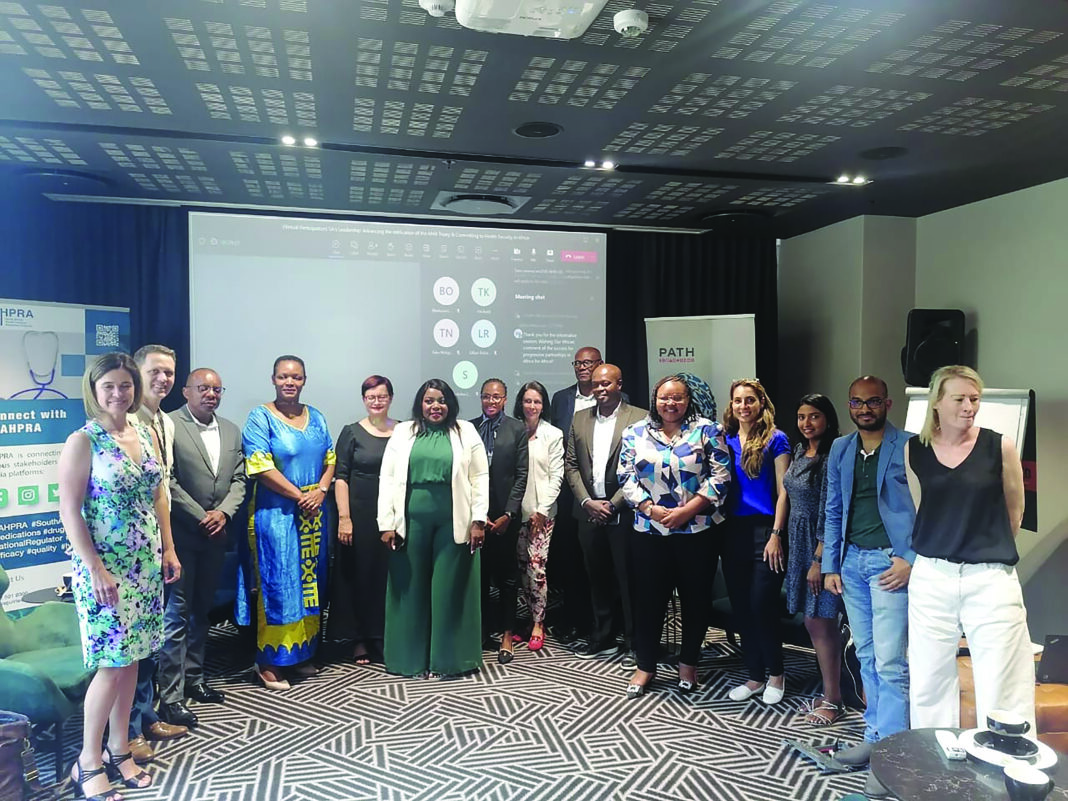Marcia Zali
The African Medicines Agency (AMA), together with the South African Health Products Regulatory Authority (SAHPRA) are ready to start a pilot that will advance Africa’s goal to have locally manufactured, regulated, and safe medicines.
Supported by the African Union Development Agency and New Partnership for Africa’s Development (AUDA-NEPAD), both AMA and SAHPRA have already started assessing about 30 different products in the pilot which is expected to take at least a year to conclude.
Ratified by at least 27 AU member states, AMA was formed through a treaty that was adopted by the AU in 2019 to help improve the continent’s healthcare delivery by creating an enabling regulatory environment for the development of a local pharmaceutical industry.
The authority also aims to improve access to quality, safe, and efficacious medicines through enhanced technologies.
The formation of AMA comes after the realisation that despite importing up to 80 percent of all pharmaceutical products, Africa only produced three percent of all pharmaceutical products globally.
The continent was also faced with delays in the approval of health products because each country had its own regulator, with some not being adequately resourced to conduct proper assessments.
This delayed access to medicines and led to substandard and falsified medicines finding their way into the market.
“The AU decided to adopt a pharmaceutical manufacturing plan for Africa (PMPA), we then said, we need self-sufficiency, we need sustainability when it comes to access to medical products and technologies,” said the Head of the African Medicines Regulatory Harmonisation at the African Union Development Agency (AUDA-NEPAD), Chimwemwe Chamdimba.
She added: “We also agreed that the best way to learn is to do joint work where regulators can come together and do joint assessments in the regional economic communities. And should be able to do joint inspections of manufacturing sites.”
Since then, five regional economic communities have harmonised their different requirements when it comes to the registration of medical products. A model law of medical products regulations has also been adopted by countries like Senegal who have started implementing the reforms in their regulatory processes.
While the South African government has not ratified the Treaty for the establishment of the AMA, the country’s National Department of Health has made recommendations for parliament to ratify the treaty.
The role played by SAHPRA as the current chair of the African Medicines Regulatory Harmonisation (AMRH) steering committee and the Continental Technical Committee on Good Manufacturing Practice (GMP) inspection are some of the motivations given to get the ratification done.
SAHPRA is also a regional centre of regulatory in vaccine regulation with a Maturity Level 3 (ML3) classification for vaccine production that has been endorsed by the World Health Organisation (WHO), making it one of two African countries to get the classification.
The Chief Executive Officer at SAHPRA, Dr Boitumelo Semete-Makokotlela said that collaborations have become innovative and impressive approaches that require responsiveness on a continental level.
She further explained that SAHPRA had already offered its digital platform where the applicants can submit their dossiers as well as a team of assessors that will be assessing the products. Along with that, the regulator is going to be offering office space while AMA looks for permanent headquarters on the continent.
“For us in South Africa, we certainly are seeing how this will benefit us in helping us to be more efficient. We know we struggle with efficiencies, we take long, and we believe that through AMA, some of the products should be prioritised in the initial phase,” said Semete-Makokotlela.
The partnership has been welcomed by civil society organisations that have expressed their commitment to advocating for the success of AMA which they believe will benefit communities by eliminating existing inequalities when it comes to access to health care.
Representing the network of 20 organisations that are advocating the implementation of policy that will advance health research and development to improve access to life-saving health technologies and innovations, the Lead at the South African Health Technologies Advocacy Coalition (SAHTAC), John Mdluli said they were ready to promote and support the work that is being done by national regulators and AMA on the continent.
Summary
- Ratified by at least 27 AU member states, AMA was formed through a treaty that was adopted by the AU in 2019 to help improve the continent’s healthcare delivery by creating an enabling regulatory environment for the development of a local pharmaceutical industry.
- “The AU decided to adopt a pharmaceutical manufacturing plan for Africa (PMPA), we then said, we need self-sufficiency, we need sustainability when it comes to access to medical products and technologies,” said the Head of the African Medicines Regulatory Harmonisation at the African Union Development Agency (AUDA-NEPAD), Chimwemwe Chamdimba.
- SAHPRA is also a regional centre of regulatory in vaccine regulation with a Maturity Level 3 (ML3) classification for vaccine production that has been endorsed by the World Health Organisation (WHO), making it one of two African countries to get the classification.

Your Trusted Source for News and Insights in Lesotho!
At Newsday Media, we are passionate about delivering accurate, timely, and engaging news and multimedia content to our diverse audience. Founded with the vision of revolutionizing the media landscape in Lesotho, we have grown into a leading hybrid media company that blends traditional journalism with innovative digital platforms.








